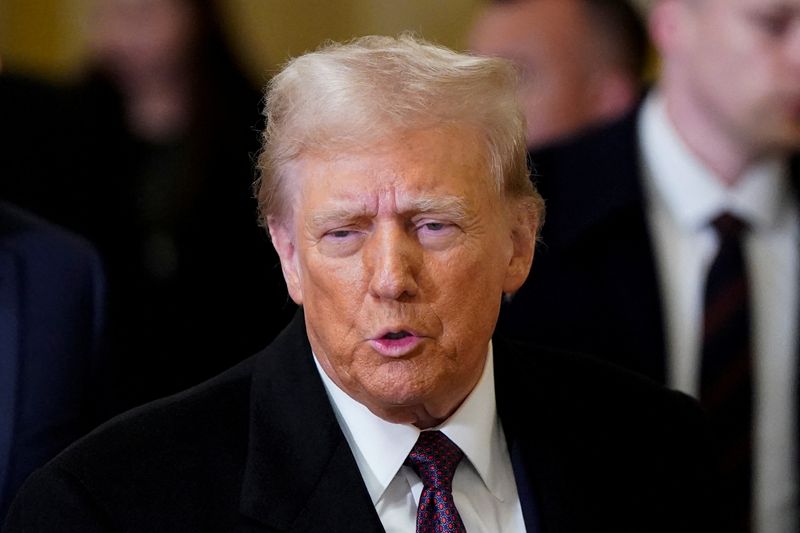Stock market today: Dow in fresh record close as Powell signals rate cut incoming
Investing.com - U.S. President Donald Trump's reciprocal tariff policy is likely to face an elongated implementation timeline, but could still be "big," according to analysts at Wolfe Research.
On Thursday, Trump ordered his economics team to review and create a plan for reciprocal tariffs on every country charging taxes on U.S. imports, in the latest escalation of his drive to overhaul America's trading relationship with its friends and adversaries alike.
Speaking with reporters in the Oval Office, Trump said the he will roll out the reciprocal tariffs for the "purposes of fairness," tasking officials with devising a push to begin tallying up U.S. duties so they can match those imposed by other countries. He also called for the removal of non-tariff barriers such as value-added taxes and vehicle safety restrictions.
However, Trump did not immediately impose the new tariffs, choosing instead to conduct potentially weeks of investigations into America's trading ties with a host of countries, including traditional allies like the European Union, South Korea, and Japan. Although markets appear to have welcomed the decision, some analysts have flagged that the tariffs could still be applied sometime this year.
Howard Lutnick, Trump's nominee to lead the Commerce Department, indicated that the studies of other countries' tariffs and non-tariff barriers should be completed by around April 1. Still, the Wolfe Research analysts led by Tobin Marcus flagged that Trump's reciprocal tariff memo "contemplates an even longer timeline," with agencies due to undertake further probes required under various trade laws after April 1 and presenting possible remedies to Trump.
"There will be headlines in the meantime, and Trump might make threats while this process is underway, but this implementation timeline is very much in line with our 'big but slow' thesis," Marcus wrote.
Trump is also taking a "broad view of reciprocity," granting him "lots of flexibility" to negotiate with U.S. trading partners, Marcus added.
Although there was some initial relief in financial markets after Trump stopped short of immediately imposing the reciprocal duties, analysts have warned that he may not be using the threat of tariffs as just a negotiation tool.
"[The] action is not mere negotiating posture -- this is the Trump administration putting nearly every country on notice," said Atlantic Council Senior Director Josh Lipsky. "[N]one of this should be dismissed as merely another Trump 'wait and see' announcement."
Trump has made international trade a central focus of the first weeks of his second term in office, slapping 10% tariffs on China, rolling out separate levies on steel and aluminum imports, and placing -- but then delaying -- duties on U.S. neighbors Canada and Mexico.
